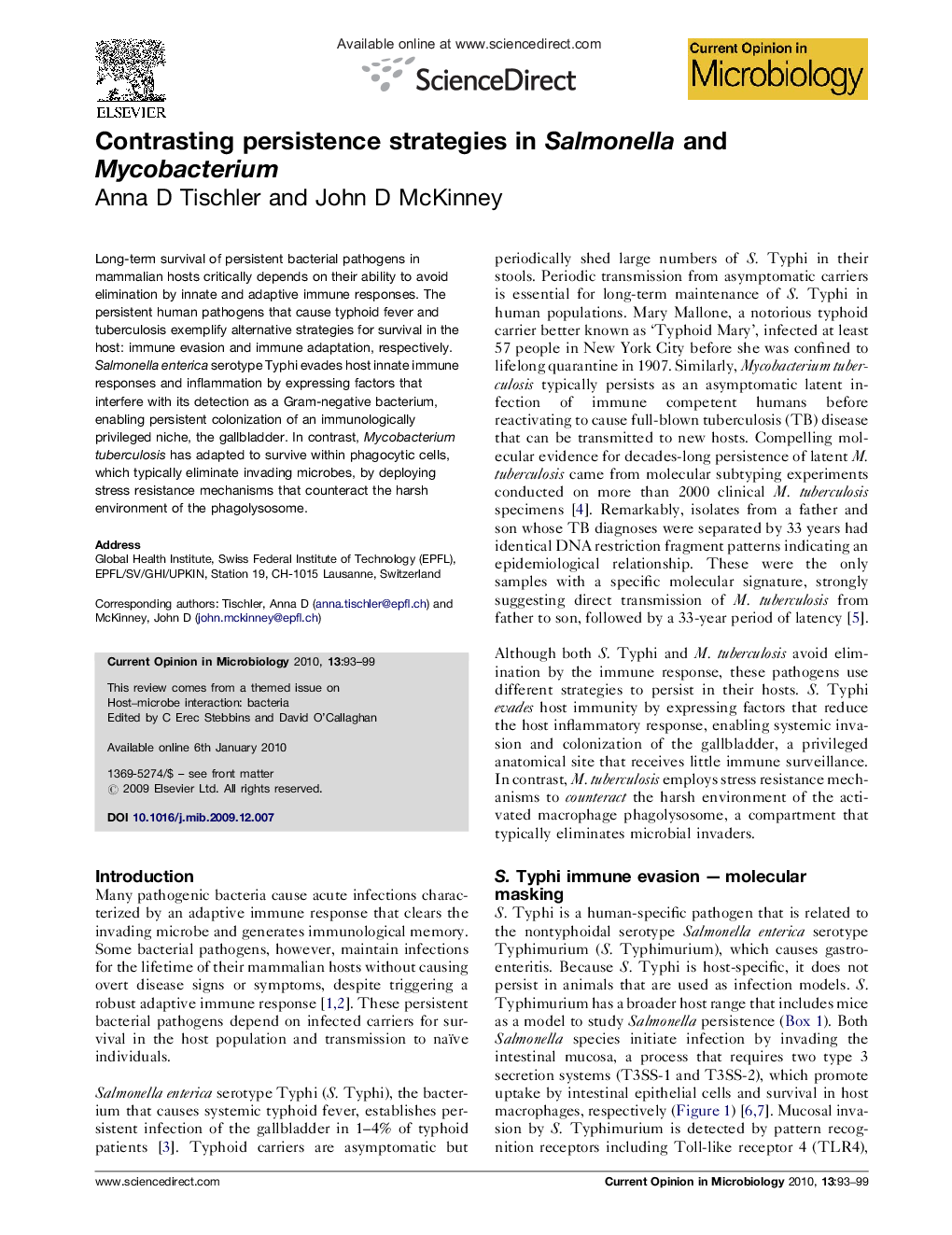| کد مقاله | کد نشریه | سال انتشار | مقاله انگلیسی | نسخه تمام متن |
|---|---|---|---|---|
| 3399402 | 1222518 | 2010 | 7 صفحه PDF | دانلود رایگان |

Long-term survival of persistent bacterial pathogens in mammalian hosts critically depends on their ability to avoid elimination by innate and adaptive immune responses. The persistent human pathogens that cause typhoid fever and tuberculosis exemplify alternative strategies for survival in the host: immune evasion and immune adaptation, respectively. Salmonella enterica serotype Typhi evades host innate immune responses and inflammation by expressing factors that interfere with its detection as a Gram-negative bacterium, enabling persistent colonization of an immunologically privileged niche, the gallbladder. In contrast, Mycobacterium tuberculosis has adapted to survive within phagocytic cells, which typically eliminate invading microbes, by deploying stress resistance mechanisms that counteract the harsh environment of the phagolysosome.
Journal: Current Opinion in Microbiology - Volume 13, Issue 1, February 2010, Pages 93–99